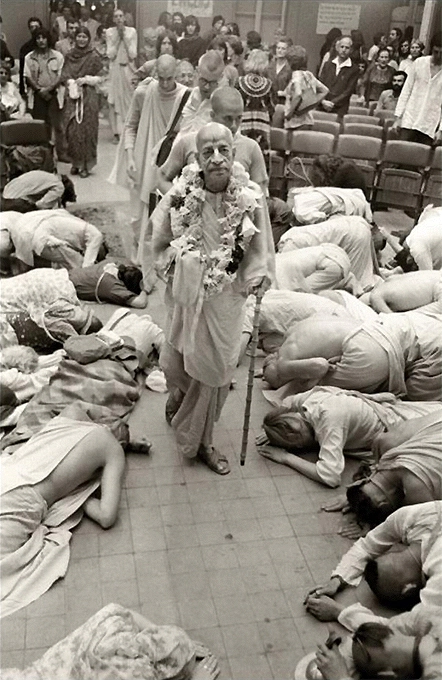I have been reading through some of the many letters written by Srila Prabhupada to his disciples. It is interesting to me how he deals with every disciple in such a personal and intimate way. How he gently instructs on behavior, while at the same time presenting the philosophy of Krishna consciousness,in such a clear, and matter of fact way.
Letter to Hamsaduta
February 09, 1969
My Dear Hamsaduta,
Please accept my blessings. I am in due receipt of your letter of January 30, 1969, and I have noted the contents carefully. I am pleased to note that you are seeing into obtaining a dictaphone for helping me in preparing so many Krishna Consciousness literatures. The maker of my present dictaphone is Grundig, and it is an Embassy de Jur, Sterorette. This model was purchased by Hayagriva in New York for $190 by cash payment, but it can be had by installment payment at a higher price. So you may do the needful in this matter.
Regarding the Panca-tattva picture, it is simply a pose of Lord Caitanya and some of His associates receiving service from Their devotees and chanting Hare Krishna. Panca-tattva is described as Krishna in five expansions, namely Krishna Himself in the role of a devotee; His Incarnation in the role of a devotee; His energy in the role of a devotee; His expansion in the role of a devotee; and His two energies (internal and marginal) in the role of devotees. So the external energy is not there. Therefore the whole manifestation is transcendental. There are three energies, namely internal, external, and marginal. Although all of the energies are connected with Krishna, the external energy is differentiated. Just like darkness is another part of light, and therefore darkness can not stand before the light, but it stands somewhere by the side of the light. Without light, there is no existence of darkness, but darkness cannot be found in the light. Similarly, there is no darkness or activities of the external energy in the Pastimes of Lord Caitanya.
Continue reading →












